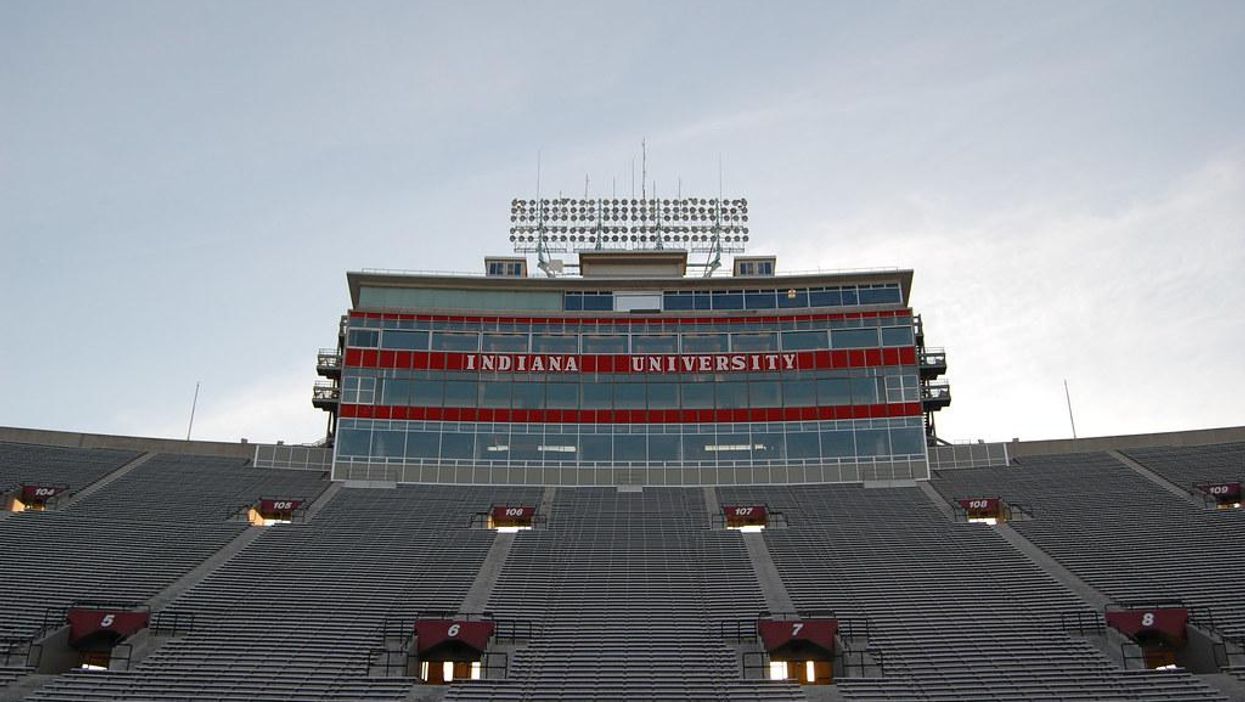At Indiana, A Few Vaccine Resisters Have A Lot To Learn
From the start of the COVID-19 pandemic, Americans have been yearning for the bygone life they once took for granted. But many of those most impatient to return to normal have been the least willing to help us get there. First, some people refused to wear masks. Now, some — often the same ones — balk at getting vaccinated.
This resistance is behind a lawsuit filed by eight students against the Indiana University, which is requiring all students, faculty and staff at all campuses to be inoculated against the virus for the fall semester. The school says exceptions will be "extremely limited," covering only those with religious objections or certain medical conditions.
The point is to move past the onerous restrictions and precautions that have made college life unrecognizable. "Classrooms, labs, housing, dining, recreation and other campus facilities will return to pre-pandemic capacities, with no physical distancing required," says IU. "Classes will be held in person in typical classroom settings."
Dining halls will return to normal service. Indoor events involving 250 or fewer people will go on as though it were 2019. Zoom will be a thing of the past. Oh, and everyone who is vaccinated can stow their masks.
Most students, it's safe to assume, will be happy to endure a couple of needle jabs for the privilege of enjoying the experience they signed up for. Most professors, likewise, will be relieved to interact with young scholars in person without fear of landing in the intensive care unit.
But on the theory that every garden party needs a skunk, this group of litigants objects. Their lawsuit claims that the school is trampling on their constitutionally protected "rights of personal autonomy and bodily integrity, and the right to reject medical treatment."
Their attorneys go so far as to compare the requirement to harvesting human organs without consent, as well as to the Tuskegee experiment, in which Black men were fatally deprived of treatment for syphilis without their knowledge or consent. Is there a vaccine for hysteria?
From the lawsuit, you might assume that no such burden has ever been placed on college students. In fact, both public and private colleges have long insisted on inoculations against dangerous, contagious diseases. Indiana University students were already obligated to get vaccines for measles, mumps, rubella, tetanus, diphtheria, pertussis, chicken pox and meningitis.
Nor is Indiana unusual. Vaccine mandates are the norm at public universities. But the advent of a disease that has become a weapon in the culture war suddenly makes a venerable, commonplace practice intolerable in some quarters.
The reasonable question is not why a university should add the novel coronavirus to the list but why it shouldn't. The vaccine, the students complain, has been approved only for emergency use, but we are still in the midst of a dire public health emergency — with an average of nearly 14,000 new infections and 347 deaths every day. Americans are also now exposed to strains of the virus that are more contagious and dangerous than previous ones.
True, young people are at relatively low risk of death and serious illness from this disease. The vaccine has also been blamed for causing myocarditis, a heart inflammation, among people under 30. But some 2,767 Americans under 30 have died of COVID-19. Cases of myocarditis associated with the vaccine are not only extremely rare — about one in 83,000 — but typically brief and mild.
CDC experts calculated that among men aged 18 to 24, the vaccine would prevent roughly ten hospitalizations for every case of myocarditis — and among women in that age group, more than 200 hospitalizations for every case of myocarditis. The benefits greatly exceed the risk.
That's not counting the value of mass vaccinations for everyone else on campus, most of whom are older and more vulnerable to COVID-19. IU spokesman Chuck Carney says that at the flagship campus in Bloomington, which had nearly 43,000 students last fall, "we're a huge part of this town" — whose population is 85,000. Administrators don't want the university to function as "an incubator for illness," he told me.
The students are suing to prevent Indiana University from taking a big step to safeguard the health of the entire community — as well as their own. It would be a shame for them to be unable to enroll this fall, because they have a lot to learn.
Follow Steve Chapman on Twitter @SteveChapman13 or at https://www.facebook.com/stevechapman13. To find out more about Steve Chapman and read features by other Creators Syndicate writers and cartoonists, visit the Creators Syndicate website at www.creators.com


